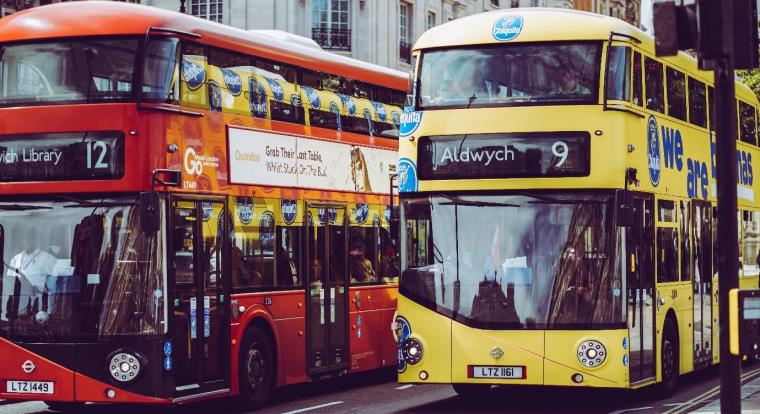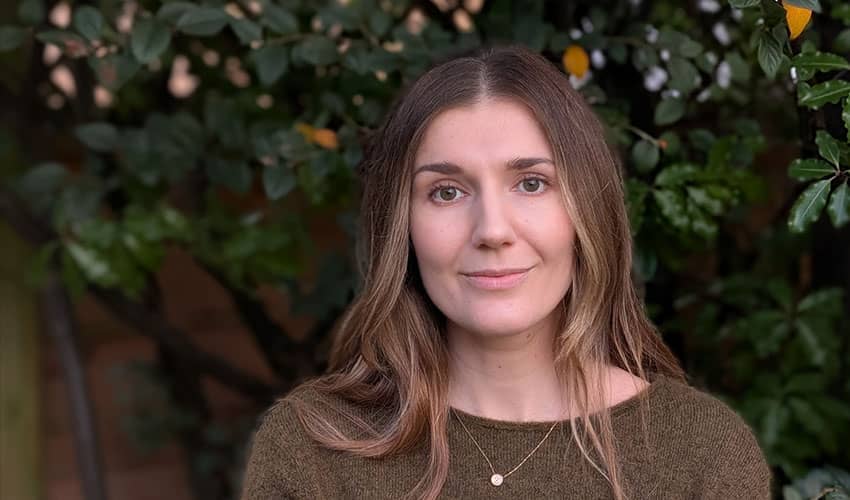Extend free and discounted bus travel for under 18s to rest of UK, say experts

Free and discounted bus travel for under 18s should be extended to the whole of the UK, suggests a report on the impact of transport on the future health of young people.
Charges should be waived or reduced to expand the concessionary bus fare schemes in operation in London and Manchester, according to recommendations drawn up in a report produced by UWE Bristol and Sustrans. This would end the postcode lottery for students and young people seeking employment, the report says.
UWE Bristol's Dr Kiron Chatterjee, the report's lead author, said there was a strong social, economic and environmental case for extending the offer to all young people.
Dr Chatterjee, an Associate Professor in Travel Behaviour, said the research concluded that young people should be prioritised in transport spending and that more should be done to ensure they have better access to affordable, good quality transport, particularly for reaching places of work and education providers.
The research was commissioned by independent charity the Health Foundation, which has conducted a two-year inquiry to build an understanding of the influences affecting the future health of young people. When the charity spoke to young people aged 16-24 in five different locations in the UK about what affects their opportunities and life chances, transport was cited in every case.
Dr Chatterjee worked with walking and cycling charity Sustrans to investigate what was known from data and previous studies about young people's access to transport and use of it and the impacts this has on their lives.
The study found that bus services were more important to 17-20 year olds than any other age group, with millennials less likely to learn to drive than previous generations of teenagers.
Dr Chatterjee, from UWE Bristol's Centre for Transport and Society, said: "We found that young people have become increasingly reliant on getting lifts by car as journey distances have increased over time. However when young people reach driving age they are less likely to get a driving licence than was previously the case before the turn of the millennium and they make fewer trips than before. As a consequence, buses are much more important for young people moving into adulthood (those 17-20 years of age) than for any other age group and this is particularly the case for those living in a household without a car."
The study found that relying on limited means of transport, such as getting lifts, inhibited young people's activities. Researchers found that where young people were supported and encouraged to use alternatives to the car, such as cycling, as children, they were more likely to be willing to use them when older.
The researchers also recommended further Government-led investment in walking and cycling as these modes of travel were of particular benefit to young people, who are more limited than other age groups in their transport options and are positive about using these forms of travel as healthy and environmentally friendly options.
Co-author of the report, Dr Andy Cope, Director of Insight at Sustrans, said: "The findings of the report, including decreasing car ownership amongst young people, provide vital evidence for policy and planning change. Urgent cross-government action is required to ensure that every person across the UK has access to safe and well connected walking and cycling infrastructure, in order to access the opportunities for a healthy and prosperous future.
"We call on Government to reduce funding for the strategic road network and instead prioritise walking, cycling and public transport infrastructure and services. Sustainable modes of transport should be the cheapest, most convenient and attractive option for all young people across the UK."
Access the full report on transport.
Related news

16 February 2026
UWE Bristol researchers awarded grant to explore impact of asset recovery on offenders
UWE Bristol academics have been awarded funding to explore of the impact of asset recovery on deterring offender behaviour and disrupting crime networks.

10 February 2026
Work by UWE Bristol lecturer features in Government’s National Cancer Plan
Work by a UWE Bristol academic has been included in the Government’s National Cancer Plan.

23 January 2026
On-demand minibus services beneficial in rural areas but face financial challenges, trials suggest
Trials of ‘demand responsive transport’ minibus services boosted connectivity for people in rural and suburban areas, according to a new report produced by UWE Bristol researchers.

18 December 2025
UWE Bristol professor appointed National Institute for Health and Care Excellence CEO
Jonathan Benger CBE, Professor of Emergency Care at UWE Bristol, has been appointed as the new chief executive officer of the National Institute for Health and Care Excellence (NICE).

17 December 2025
Findings revealed from first UK study into experiences of mothers who are survivors of rape pregnancy
UWE Bristol academics have revealed the findings of the first UK-based study of the experiences of mothers who are survivors of rape pregnancy.

11 December 2025
Social media influencer work is far more demanding than it looks, research finds
A study exploring the mental health impacts of social media influencer work has revealed that life online is far more demanding than it appears.

25 November 2025
UWE Bristol experts join film Q&A exploring music and melodrama
Academics will take part in the Cary Comes Home Festival, with a post-screening Q&A exploring music, melodrama and emotional storytelling in classic cinema.

17 November 2025
Urgent reform needed to support ambulance-delivered end of life care, study finds
More than three quarters (78 per cent) of paramedics sometimes fear doing the wrong thing when caring for people in the last year of life, new research has found.

13 November 2025
Bristol’s screen industry experiences “boom-and-bust cycle” after post-pandemic recovery, new research from UWE Bristol finds
New research from UWE Bristol provides detailed insight into Bristol's screen sector.

13 November 2025
New AI research to revolutionise animal welfare
A UWE Bristol research project will combine behavioural science and AI to create technology that understands not only what animals do, but how they feel.

10 November 2025
Lessons from Low Traffic Neighbourhoods will drive better public engagement, study finds
Lessons from Low Traffic Neighbourhoods have informed a new toolkit to improve engagement with the public on challenging local street issues.

06 November 2025
First-of-its-kind study aims to help more people spend their final days at home
A new study will explore how architectural design could support end-of-life care in domestic settings.






